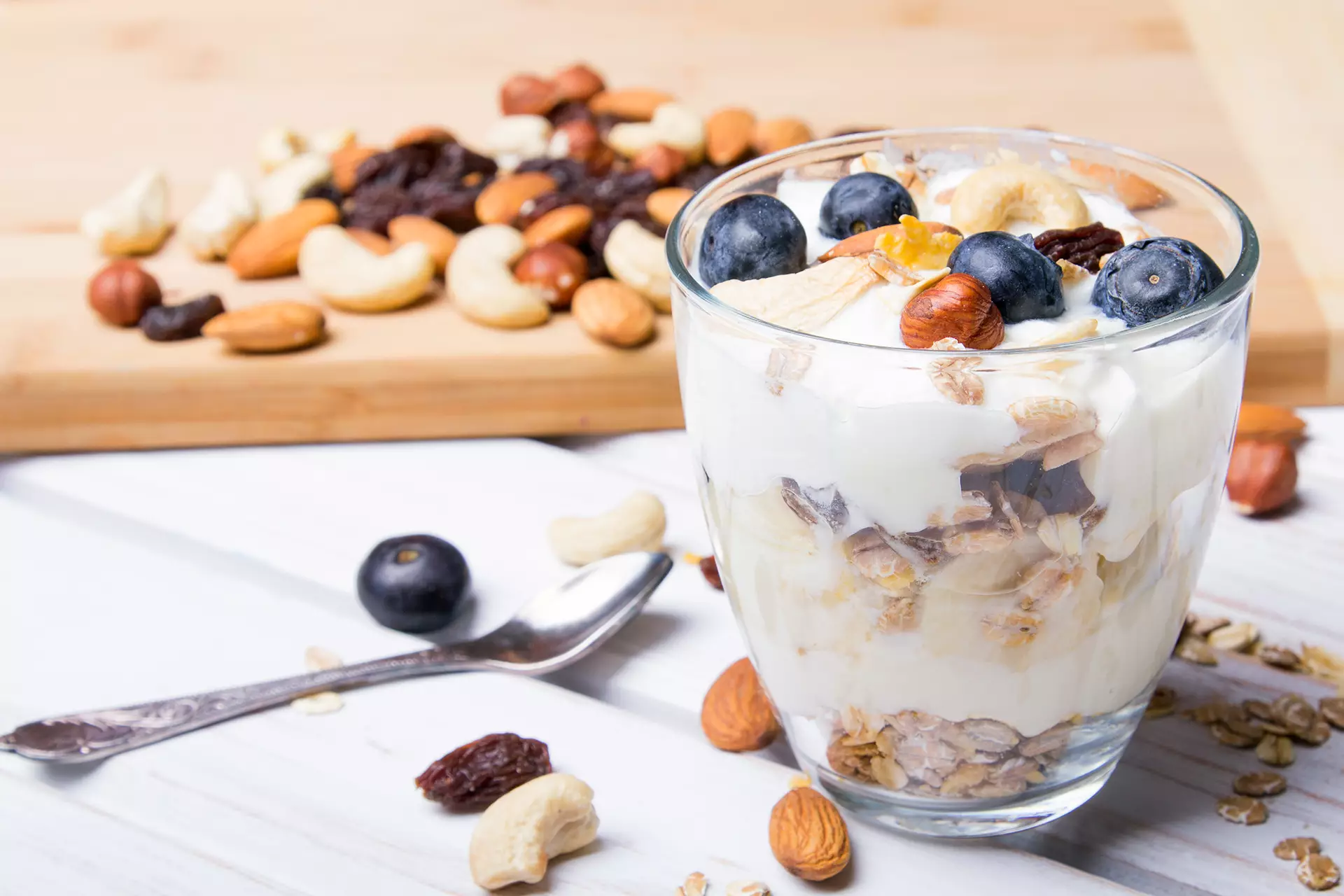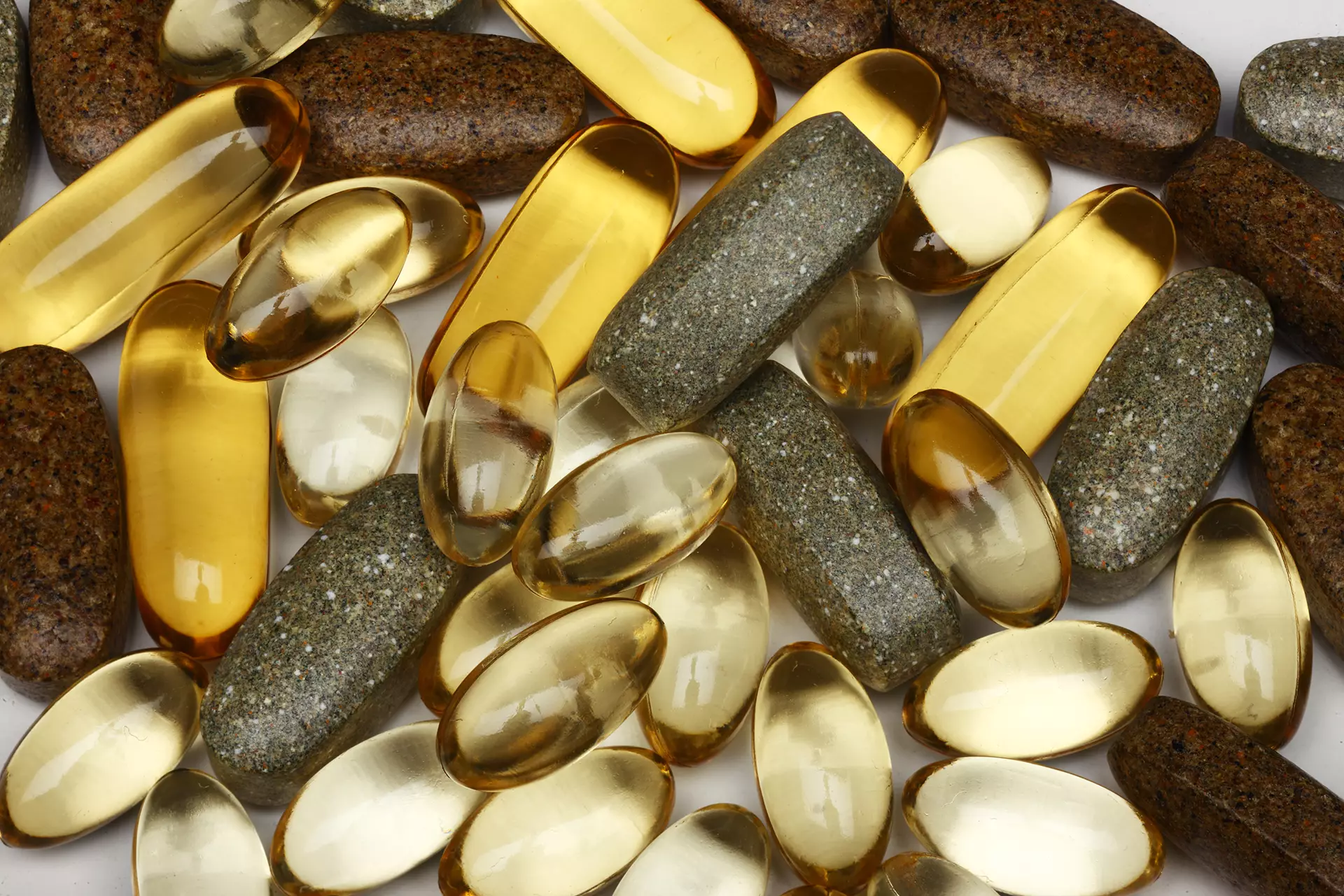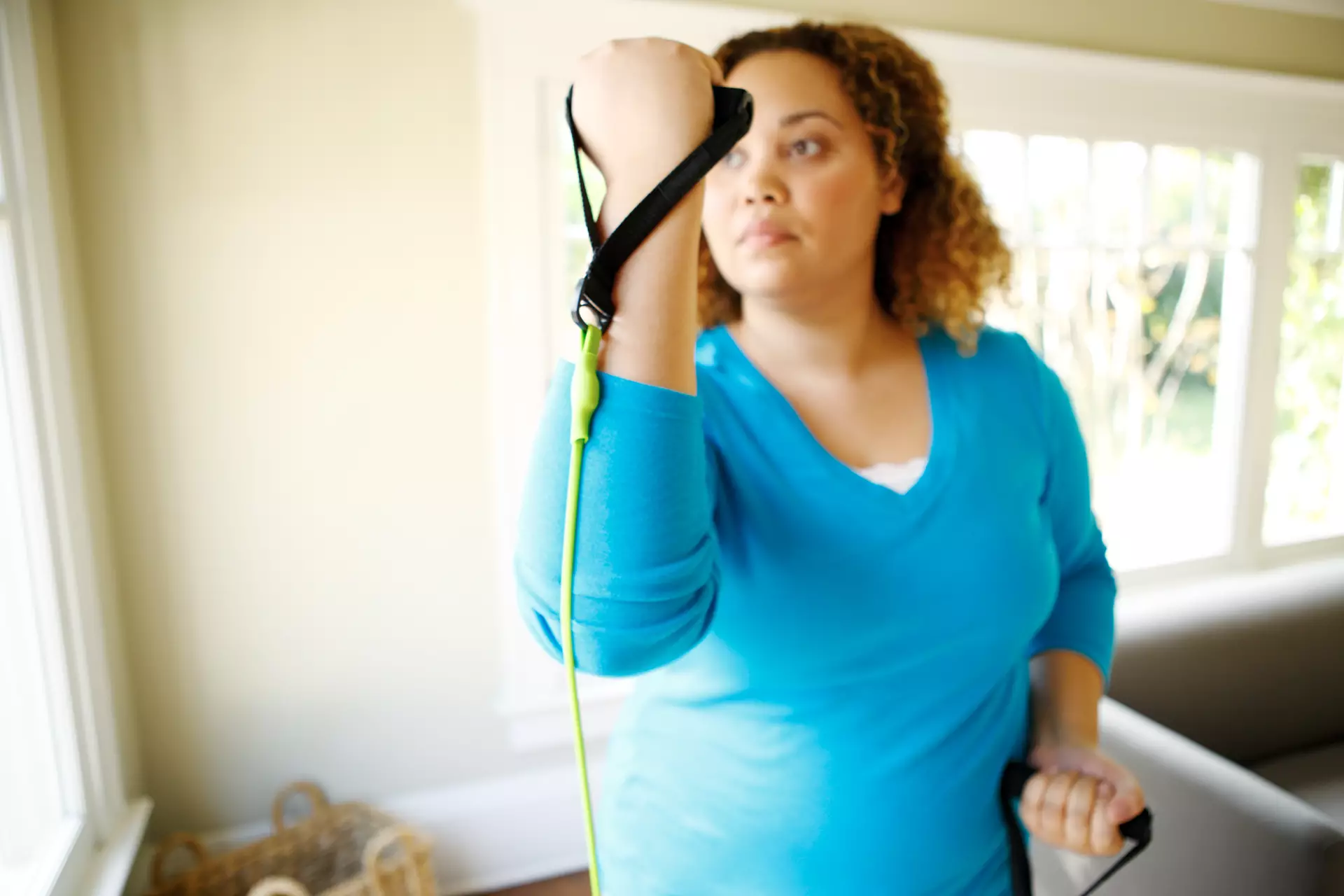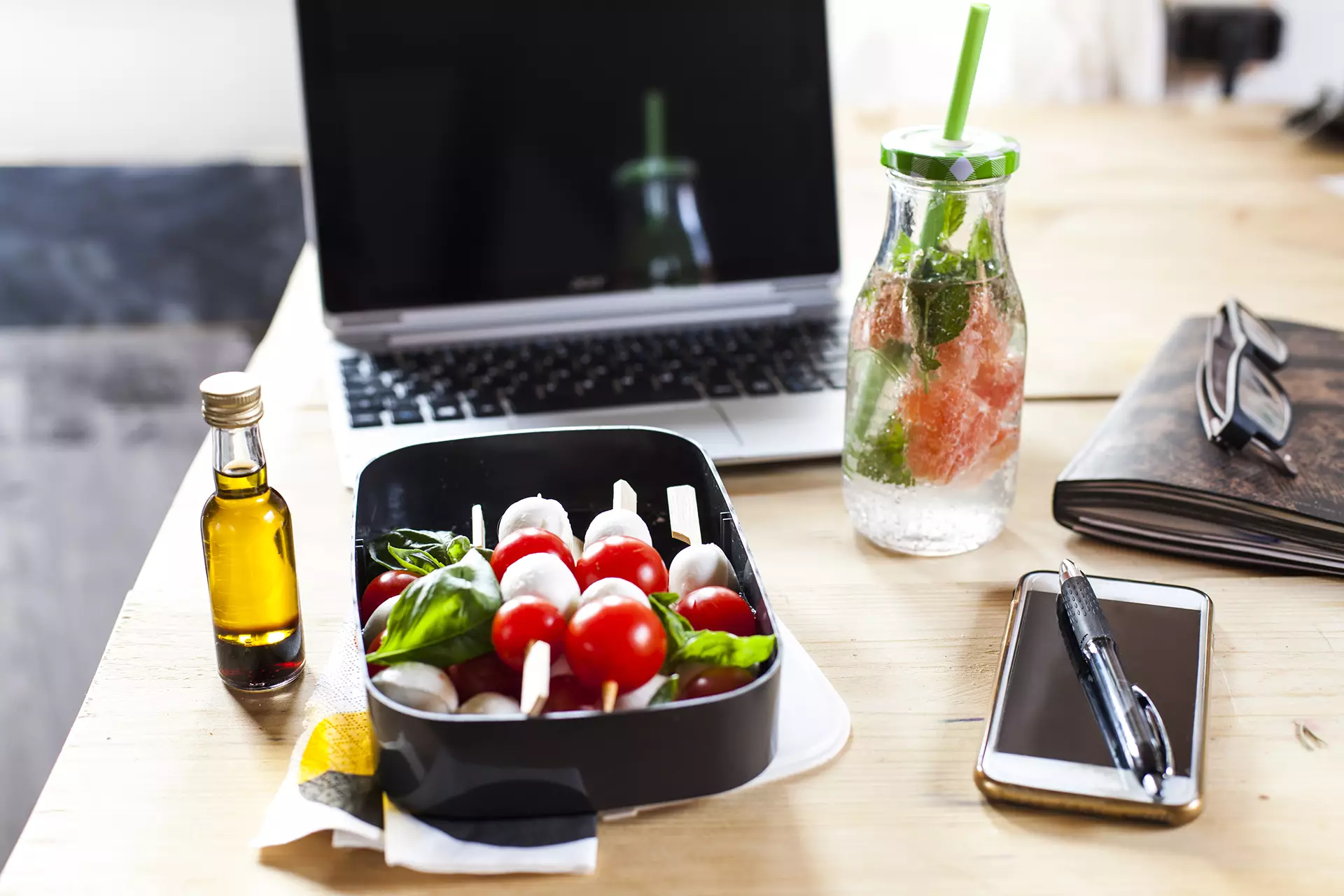Nutrition after surgery
Nutrition after surgery can often seem daunting, but it really comes down to following a few key recommendations. Check out the tips, tools, and resources for healthy eating after surgery.

Post-surgery meal plan
The Kaiser Permanente post-surgery meal plan is designed to be your guide to nutrition after metabolic and bariatric surgery. Surgery gives you a brand new digestive tract, so you must treat it with care. Slowly reintroducing different textures and foods is important for helping your new digestive tract adjust, healing from surgery, maximizing weight loss, and making sure you are able to tolerate more foods in the long run. The four sections of the book provide everything you need to know about post-surgery nutrition.
Caution foods after surgery
Many people worry whether life after surgery will mean that they’re restricted in everything they can eat. This isn’t true! Following the post-surgery meal plan will help make sure you can still enjoy many of your favorite foods. As you move through the stages of the post-surgery meal plan, you will learn which foods work for you. However, there are some key foods and drinks to be cautious of for the rest of your life.
Foods that may cause weight gain and dumping syndrome
Eating these foods can make you very uncomfortable and lead to diarrhea and vomiting. While eating too much of any food can cause weight gain, the high-fat foods on this list can have major health impacts.
- Alcohol*
- Bacon
- Cake (especially the sugary frosting)
- Candy
- Coffee drinks*
- Cookies
- Creamy sauces
- Doughnuts
- Fast food
- French fries
- Fried foods
- Frozen yogurt
- Hamburgers
- Hash browns
- High-fat cheeses
- Horchata
- Hot dogs/sausages
- Ice cream
- Juice
- Juice smoothies
- Mayonnaise
- Milkshakes
- Pan dulce
- Pastries
- Pizza
- Pork rinds/chicharrones
- Potato chips
- Refrescos
- Soda
- Spicy foods
- Sports/energy drinks (zero- or low-calorie sports drinks are OK)
- Sugar alcohols (sorbitol, mannitol, xylitol, isomalt)
*See caution notes on coffee and alcohol below.
Foods that may cause bloating, pain, and acid reflux
- Alcohol*
- Caffeine*
- Carbonated/fizzy drinks (soda, sparkling water)
- Chocolate
- Fatty/greasy foods
- Spicy food
*See caution notes on coffee and alcohol below.
Foods that may cause a blockage
These foods can block the connection between the stomach and small intestine.
- Celery, raw (cooked in soup is OK)
- Coconut
- Corn
- Dried fruit
- Hot dog/sausage skins
- Nuts/seeds
- Popcorn
- Potato skins (for at least 6 months after surgery)
- Skins/seeds of fruits and vegetables (for at least 6 months after surgery)
- Avoid: Gum
Foods with limited nutritional value and may cause complications
These foods have limited nutritional value, may cause pain and discomfort, and take up a lot of space in your tiny stomach pouch. This leaves less room for the important nutrients you need to get after surgery.
- Bagels
- Biscuits
- Bread
- Croissants
- French toast
- Granola
- Muffins
- Pancakes
- Pasta
- Pita bread
- Rice cakes
- Rolls
- Stuffing
- Waffles
Follow the post-surgery meal plan to learn how to incorporate small amounts of starches back into your diet at the right time.
Caution note on alcohol
Overall, it’s recommended that you avoid all alcohol (beer, wine, liquor, cocktails) after surgery.
Why?
- Alcohol is high in calories. It can reduce weight loss and lead to weight gain.
- Tolerance of alcohol changes. It’s absorbed much faster into the bloodstream and stays in your system longer.
- Alcohol may increase the risk of an ulcer.
- Alcohol increases the risk for low blood sugar (a dangerous condition that can lead to loss of consciousness, and brain or nerve damage).
- Alcohol can increase the risk for developing a new addiction, especially in people with a history of addiction.
- One in five patients develop alcohol-use disorder within 7 years after surgery.
Caution note on caffeine
Some surgeons recommend that caffeine in all forms (coffee, tea, energy drinks) be avoided forever after surgery. Others say that small amounts can be allowed starting in stage 4 of the post-surgery meal plan or later, when you are able to get all your fluid requirements.
Why?
- Caffeine causes the body to increase urination and the flushing of water out of the body. Too much caffeine can lead to dehydration, which you are already at high risk for after surgery.
- Caffeine drinks are often acidic, which can cause irritation to your stomach.
- Caffeine can reduce absorption of some vitamins and minerals because your digestive system has changed.
- Caffeine often comes paired with sugary, high-calorie drinks, which can lead to weight gain and/or dumping syndrome.
- Too much caffeine can cause digestive issues, which can lead to diarrhea or gastric reflux.
While caffeine recommendations vary by surgeon, here are some general tips to follow if you do choose to drink caffeine:
- Avoid caffeine until at least stage 4 (5 to 6 weeks after surgery).
- Consider avoiding or limiting decaf coffee as well. It contains small amounts of caffeine and tannins that can block the absorption of some vitamins and minerals.
- Limit coffee or tea to 1 small cup (12 ounces or 200 mg of caffeine) a day and observe your tolerance. Stay hydrated. Aim for 64 ounces (8 cups) of no-calorie, noncaffeinated drinks a day.
- Take all your recommended vitamin and mineral supplements, but avoid taking them with caffeinated drinks like coffee or tea. Don’t take your supplements within 2 hours of a caffeinated drink.
- Be mindful of what you add to coffee or tea.
Choosing protein supplements
For the first few weeks after surgery, you will not be eating solid foods. Most of your protein will come from protein supplements. As your body heals and your stomach pouch adjusts, you will get more protein from food. However, most people who have had surgery continue to use at least 1 protein supplement a day for life.
What should you look for in a protein supplement?
For more information on protein supplements, explore pages 54 to 55 of the Options Workshop Guide.

Don’t feel deprived
There are many ways you can make some of your favorite foods healthier. Explore recipes designed to support you at each stage of your recovery from metabolic and bariatric surgery.
Meal planning and tracking
Planning and tracking are powerful tools when it comes to making any behavior change. Whether you use an online app or the Lifestyle Log, planning and tracking can help you take small steps toward bigger changes, like healthy eating.
Remember, you don’t have to track every day. Maybe you’ll track habits for a few days every once in a while to identify habits or patterns that may not be serving you. Or maybe you’ll plan and track every day to provide daily inspiration when you meet your goals. Make these tools work for you!
Meal planning
- Use cookbooks or online recipes to plan several main meals.
- Plan some quick meals or double some recipes that freeze well for busy nights.
- Make sure you have the ingredients you need for your recipes by using lists.
- List foods that you use to make all meals and snacks. Include plenty of fruits and vegetables.
- Post this list on the refrigerator. Add to it as you think of more things you need.
- Take the list to the store to do your weekly shopping.
Daily Lifestyle Log
Keeping track of your progress toward a goal, even if only for a few days a week, can help you focus on clear goals, get motivated, identify patterns or habits, and see your progress. This simple tracking log is designed for our members who have had metabolic and bariatric surgery.











